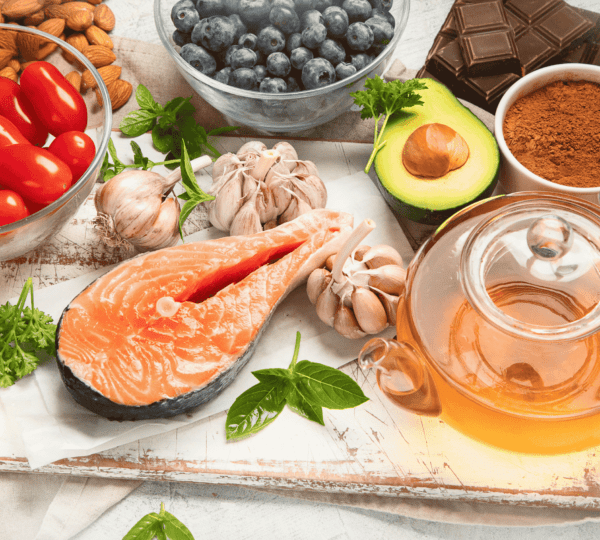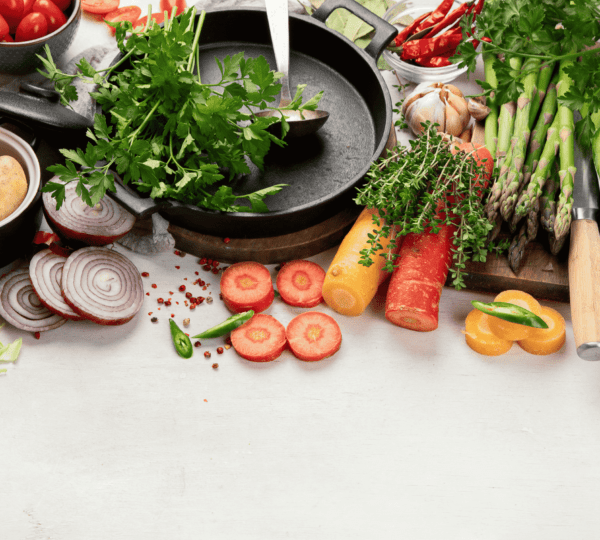
How to Optimize Your Diet for Better Skin Health
I recently saw a TV commercial for a hand sanitizer. The product was advertised to clean germs, repair dry skin, and soften hands all at once. My friend and I laughed about it.
A few years ago, she was buying every skincare product that promised miracles—glowing serums, anti-aging creams, hydrating masks. If it claimed to fix dull skin, she was sold. I used to tease her about how her bathroom looked like a mini skincare store. But despite the endless collection, she often complained about breakouts, dryness, or redness. One day, after yet another expensive purchase that didn’t deliver results, she sighed and said, “Maybe my skin just hates me.”
That was when she decided to change her approach, she began a session with a nutritionist. Instead of adding more products, she started focusing on what she was putting inside her body. She swapped processed snacks for fresh fruits, drank more water, and added skin-nourishing foods to her meals. Within months, her skin looked healthier than it ever had.
When we sat down for gists and she shared her transformation story, I realised that what we take into our body is what reflects outside. If you want clear, glowing skin, the right diet can make all the difference. Here’s how to optimize your diet for better skin health.
The Skin-Gut Connection: More Than Just a Pretty Face
Your skin is the largest organ in your body, and just like your heart or brain, it needs the right nutrients to function at its best. The connection between your gut health and skin health is undeniable. Think of your gut as a bustling metropolis of bacteria, both good and bad. When this delicate ecosystem is balanced, it supports overall well-being, including skin health. However, an imbalance, often caused by a poor diet, can lead to inflammation throughout the body, manifesting as skin issues like acne, eczema, and rosacea.
Dr. Whitney Bowe, a renowned dermatologist and author of The Beauty of Dirty Skin, emphasizes this connection, stating, “The gut microbiome plays a crucial role in skin health, and nurturing it through diet is essential.” A healthy gut helps regulate inflammation and supports the production of vital nutrients that keep your skin looking its best.
Essential Nutrients for Radiant Skin
So, what does a skin-friendly diet look like? It’s all about embracing a diverse range of nutrient-rich foods. Think of your plate as a canvas, and the foods you choose are the vibrant colors that create a masterpiece.
Omega-3 Fatty Acids: The Anti-Inflammatory Hero
Omega-3s help maintain skin hydration, reduce redness, and fight inflammation. They’re also known to reduce acne severity and keep the skin barrier strong.
- Best sources: Fatty fish (salmon, sardines, mackerel), chia seeds, flaxseeds, walnuts.
A study from The American Journal of Clinical Nutrition found that people who consumed more omega-3s had a 30% lower risk of developing acne.
Antioxidants: Your Skin’s Best Defense Against Aging
Antioxidants help protect your skin from free radicals—unstable molecules that cause wrinkles and sagging.
- Best sources: Berries (blueberries, strawberries, raspberries), dark chocolate (at least 70% cocoa), spinach, green tea.
Dermatologist Dr. Whitney Bowe emphasizes the role of antioxidants in protecting skin from UV damage and pollution.
Collagen-Boosting Foods: The Secret to Youthful Skin
Collagen is a protein that gives your skin its structure and firmness. As we age, collagen production declines, leading to wrinkles and sagging.
- Best sources: Bone broth, eggs, citrus fruits (oranges, lemons, grapefruit), leafy greens.
A 2019 study in The Journal of Functional Foods found that collagen supplementation significantly improved skin elasticity and hydration in just 12 weeks.
Hydration: The Underrated Skincare Hack
Drinking enough water is essential for maintaining plump, hydrated skin. But did you know that certain foods can also help keep your skin moisturized?
- Best hydrating foods: Cucumbers, watermelon, celery, coconut water.
- Pro Tip: Adding lemon to your water boosts hydration and provides extra vitamin C for collagen production.
Foods That Damage Your Skin
Not all foods are skin-friendly. Some can contribute to breakouts, inflammation, and premature aging.
Sugar: The Wrinkle Accelerator
High sugar intake leads to glycation, a process that damages collagen and makes skin look older.
- Avoid: Sugary drinks (sodas, energy drinks), processed snacks (cookies, cakes, candies), high-carb foods (white bread, pasta).
A study in The Journal of the American Academy of Dermatology found that a high-sugar diet increases acne severity.
Dairy: A Potential Acne Trigger
While dairy is a great source of calcium, studies suggest it may contribute to acne due to its hormone content.
- Consider limiting: Milk, cheese, ice cream.
- Alternatives: Almond milk, oat milk, dairy-free yogurt.
According to Harvard Health, people who reduced dairy intake saw improvements in their acne within a few weeks.
Processed and Fried Foods: The Inflammation Culprits
Fast food and processed snacks contain trans fats and refined oils that promote inflammation, leading to breakouts and dull skin.
- Avoid: French fries, chips, processed meats (bacon, sausages).
- Better choices: Baked sweet potatoes, air-popped popcorn, grilled chicken.
A Sample Skin-Healthy Meal Plan
If you’re wondering how to incorporate these skin-boosting foods into your daily routine, here’s a simple meal plan:
- Breakfast: Greek yogurt with berries and a sprinkle of flaxseeds.
- Lunch: Grilled salmon with quinoa and steamed spinach.
- Snack: A handful of walnuts and a cup of green tea.
- Dinner: Stir-fried tofu with bell peppers and brown rice.
- Dessert: A piece of dark chocolate and herbal tea.
Final Thoughts: You Are What You Eat
Optimizing your diet for better skin health isn’t about strict dieting—it’s about making mindful choices that nourish your skin from the inside out. By incorporating more omega-3s, antioxidants, and collagen-boosting foods while reducing sugar and processed foods, you’ll notice a visible improvement in your skin.
Start small, stay consistent, and watch your skin transform! Have any favorite skin-boosting recipes? Share them in the comments!
Citations
- The Journal of Dermatological Science (2021). “The Role of Nutrition in Skin Health.”
- The American Journal of Clinical Nutrition. “Omega-3 Fatty Acids and Acne Prevention.”
- The Journal of Functional Foods (2019). “Collagen Supplementation and Skin Elasticity.”
- The Journal of the American Academy of Dermatology. “High Glycemic Diets and Acne Severity.”
- Harvard Health Publishing. “Dairy and Its Impact on Acne.”
- Interview with Dr. Whitney Bowe, Healthline. “Antioxidants and Skin Protection.”
Related posts:
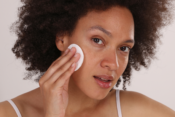 The Complete Beginner’s Guide to Starting Your First Skincare Routine in 2025: Everything You Need to Know
The Complete Beginner’s Guide to Starting Your First Skincare Routine in 2025: Everything You Need to Know
 Solutions for Every Skin: The Complete Guide to Targeting Specific Skin Concerns in 2025
Solutions for Every Skin: The Complete Guide to Targeting Specific Skin Concerns in 2025
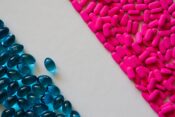 The Role of Vitamins and Supplements in Overall Wellness of the Body
The Role of Vitamins and Supplements in Overall Wellness of the Body
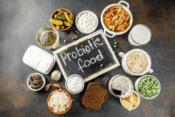 Decoding Gut Health: What Are Prebiotics and Probiotics, and How to Add Them to Your Diet
Decoding Gut Health: What Are Prebiotics and Probiotics, and How to Add Them to Your Diet

